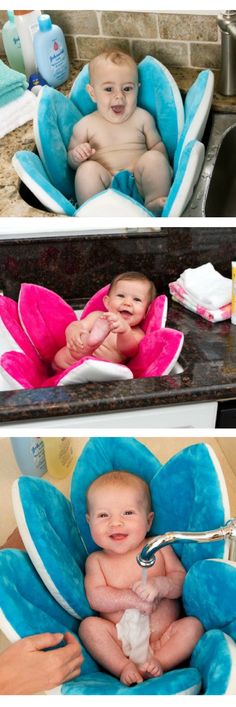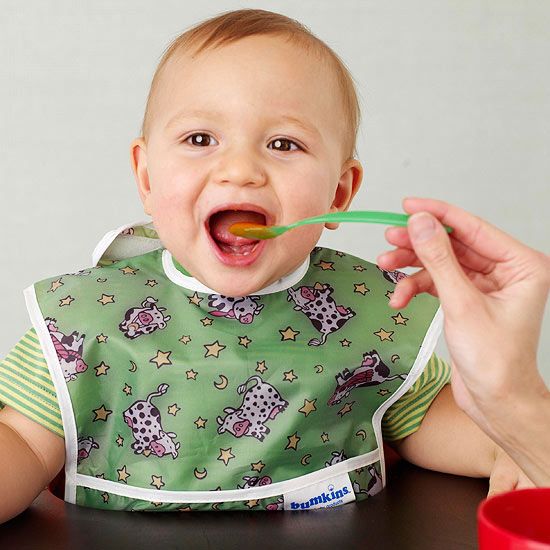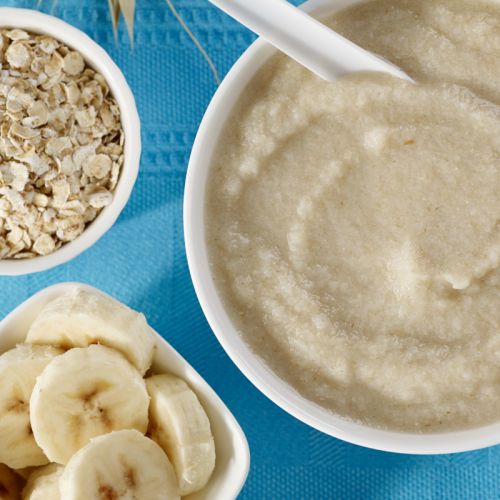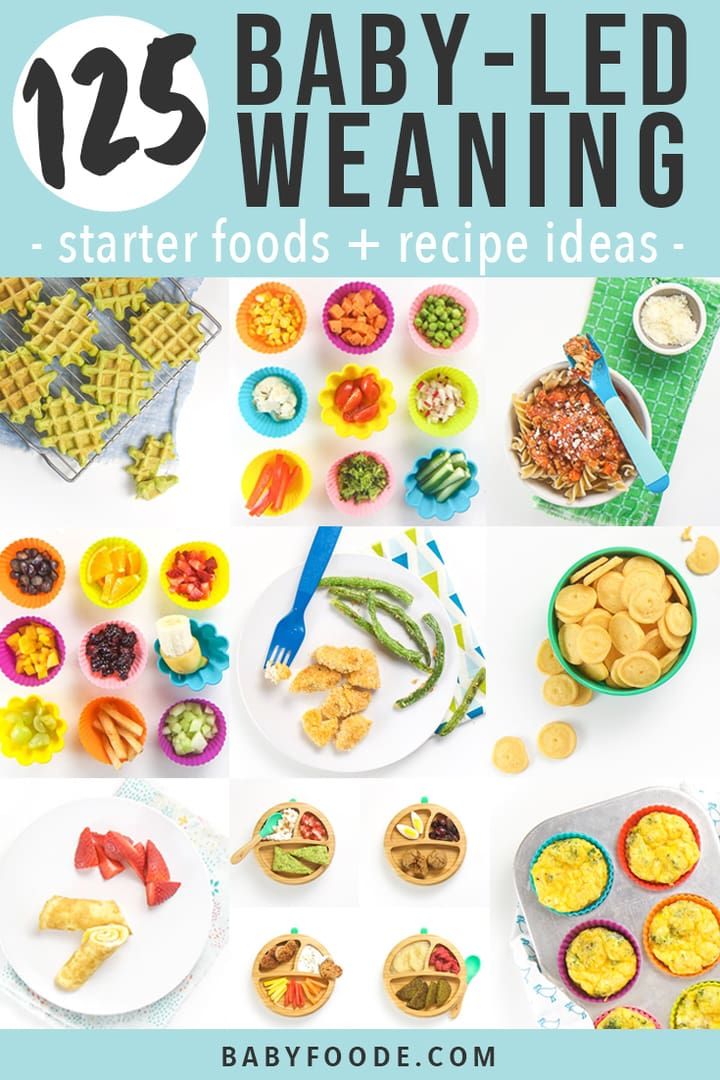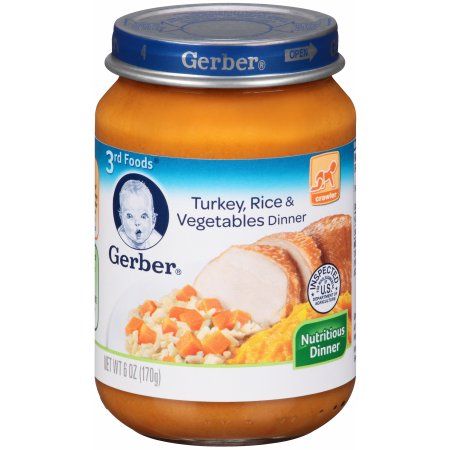The baby food diet
What Is It, and Can You Lose Weight?
Baby Food Diet: What Is It, and Can You Lose Weight?Medically reviewed by Jillian Kubala, MS, RD, Nutrition — By Aimee Eyvazzadeh, MD, MPH — Updated on October 31, 2020
The baby food diet involves replacing breakfast, lunch, and snacks with 14 containers of baby food. You then eat a regular dinner in the evening. The diet is meant to last for 3 days.
The baby food diet gained popularity around 2010. It’s rumored that actress Jennifer Aniston, with the help of her celebrity trainer, used the diet to lose 7 pounds in a week during the filming of the movie “Just Go with It.”
The idea of losing a pound per day may sound tempting, but the baby food diet fits into the category of a fad diet.
Many fad diets might help you lose weight in the short term, but they’re usually difficult to follow for an extended period of time.
In this article, we’ll take a closer look at what exactly the baby food diet is, as well as the pros and cons of this eating plan.
The premise behind the diet is that the small portion sizes of baby food will reduce your daily calorie intake. The bland taste of pureed baby food is also supposed to discourage you from overeating.
There are several less restrictive versions of the diet, like replacing only one meal a day with baby food.
Compared to many fad diets, the baby food diet has loose guidelines. For instance:
- The diet plan doesn’t specify which type of baby food you can eat. The calorie content in baby food can vary from about 20 calories to more than 120 calories per jar.
- It doesn’t put a limitation on what you can eat for dinner.
Here’s an example of what an average day might look like on the baby food diet.
- Breakfast: 5 jars of baby food
- Lunch: 5 jars of baby food
- Afternoon snack: 2 jars of baby food
- Dinner: your regular dinner
- Evening snack: 2 jars of baby food
Most reports of weight loss on the baby food diet are anecdotal. According to people who’ve tried it, it can help you lose weight in the short term.
However, there’s currently no scientific evidence to back up these claims or to prove it’s an effective diet for long-term weight loss.
Replacing your usual meals with baby food will likely lower the number of calories you eat per day, which is probably one of the main reasons why you may lose weight while you’re on this diet.
But research suggests that restricting calories alone is rarely an effective method for reducing body weight. When you lower your calorie intake, your body’s metabolism tends to slow down, too. You may also feel hungrier than usual if you aren’t getting enough calories.
Because this diet typically lowers your intake of fiber and sodium, the weight you lose may be from water retention and not necessarily from fat.
Research also shows that the weight that’s lost on calorie-restrictive diets is usually regained when you return to your usual eating habits.
In theory, it’s possible to get most of your essential nutrients while following the baby food diet. Many baby foods are made from pureed fruits and vegetables. Some baby foods are also made from high-protein foods or whole grains.
Following the baby food diet for the recommended 3 days likely won’t hurt you. But following this diet for a longer period of time could lead to nutrient deficiencies if you’re eating far below your daily calorie need.
With restrictive diets like the baby food diet, it’s also important to keep in mind the risk of developing disordered eating, which could lead to an eating disorder if the diet is followed for a longer period of time.
Here are some of the advantages and disadvantages of the baby food diet.
Pros
- High in fruits and vegetables. Most baby foods are made from pureed fruits and vegetables.
- Low in sodium. Most baby foods are low in sodium. Babies have a lower sodium requirement than adults.
- Low in fat. Most baby foods are low in saturated fat.
- No preparation. Besides your evening meal, there’s no meal prep necessary. Just open a jar and eat.
Cons
- Restrictive. The baby food diet lacks the calories and nutrients you need to properly fuel your body.
- Not filling. Most baby foods are low in protein and fiber. You may find that you feel hungry even when consuming adequate calories.
- Low in fiber. You’ll get a lot more fiber from eating fresh fruits, vegetables, and whole grains, rather than from food that’s been pureed.
- Expensive. Most baby foods are fairly expensive per serving.
- Large variation in calories between brands. The number of calories in a container of baby food varies from about 20 to 120 calories. Eating 14 containers per day could provide you with anywhere from 280 to 1,680 calories.
Following the baby food diet may help you quickly shed a few pounds, but it’s unlikely to cause sustainable weight loss.
Instead, a healthier strategy for long-term weight loss is to:
- Eat a balanced diet of fruits, vegetables, whole grains, low fat dairy, lean protein, and healthy fats.
- Limit your intake of foods and drinks that are high in added sugars.
- Focus on portion control. Resist eating more than you need to satisfy your hunger.
- Exercise regularly, at least 150 minutes a week.
- Don’t skip meals.
If you’re looking to quickly lose a few pounds, the baby food diet may help you achieve results. But if you’re looking for sustainable, long-term weight loss, it’s far from ideal.
The baby food diet falls into the category of fad diets. These types of diets often promise rapid weight loss and include a strict list of foods you can and can’t eat.
Containers of baby food are relatively low calorie, but research has shown that restricting too many calories can slow down your metabolism. This means that as soon as you go back to eating normal meals, you’ll likely put the weight back on.
A safer and healthier option for long-term weight loss is to follow a balanced eating plan that includes all food groups, while also keeping an eye on your portion sizes, and including regular exercise in your weight loss program.
Last medically reviewed on October 31, 2020
How we vetted this article:
Healthline has strict sourcing guidelines and relies on peer-reviewed studies, academic research institutions, and medical associations. We avoid using tertiary references. You can learn more about how we ensure our content is accurate and current by reading our editorial policy.
- Benton D, et al. (2017). Reducing calorie intake may not help you lose body weight. DOI:
10.1177/1745691617690878 - Fad diets. (2017).
my.clevelandclinic.org/health/articles/9476-fad-diets - Fernández-Elías VE, et al. (2015).
Relationship between muscle water and glycogen recovery after prolonged exercise in the heat in humans. DOI:
10.1007/s00421-015-3175-z - Obert J, et al. (2017). Popular weight loss strategies: A review of four weight loss techniques. DOI:
10.1007/s11894-017-0603-8 - U.S. Department of Health and Human Services. (2015). Chapter 1: Key elements of healthy eating patterns: A closer look inside healthy eating patterns. Dietary guidelines for Americans 2015-2020.
health.gov/dietaryguidelines/2015/guidelines/chapter-1/a-closer-look-inside-healthy-eating-patterns/#food-groups
Our experts continually monitor the health and wellness space, and we update our articles when new information becomes available.
Current Version
Oct 31, 2020
By
Aimee Eyvazzadeh, MD, MPH
Edited By
Tracey Crate
Medically Reviewed By
Jillian Kubala, MS, RD
Copy Edited By
Copy Editors
Nov 11, 2019
By
Aimee Eyvazzadeh, MD, MPH
Edited By
Claire Brocato
Medically Reviewed By
Carissa Stephens, RN, CCRN, CPN
Share this article
Medically reviewed by Jillian Kubala, MS, RD, Nutrition — By Aimee Eyvazzadeh, MD, MPH — Updated on October 31, 2020
Read this next
The Grapefruit Diet: Does It Work for Weight Loss?
Medically reviewed by Miho Hatanaka, RDN, LD
In the grapefruit diet, people eat grapefruit with almost every meal.
Does it work for weight loss, and is it safe? We take a closer look.
READ MORE
How the 5:2 Intermittent Fasting Diet Can Help You Lose Weight
The 5:2 intermittent fasting diet allows people to eat what they want 5 days a week and then limit calories on the other 2 days.
READ MORE
Does the Galveston Diet Help Menopausal Women Lose Weight?
By Soniya Nikam, MS, RD
The Galveston diet is said to help menopausal women lose weight. This article provides a comprehensive review of the Galveston diet, including its…
READ MORE
Can the Endomorph Diet Help You Lose Weight?
Learn about the endomorph diet and body type and how to best achieve your weight loss goals.
READ MORE
The 16 Best Paleo Brands and Products
By Jillian Kubala, MS, RD
While transitioning to a paleo dietary pattern can be challenging, finding paleo-friendly products that actually taste good can be even more difficult.
READ MORE
Global Diets Haven’t Improved in 30 Years, Here’s What to Know
Globally, diets have not improved very much over the last 30 years a study in the journal Nature Food reports.
READ MORE
Best Diet for Hypothyroidism: Foods to Eat, Foods to Avoid
By Ryan Raman, MS, RD and Jillian Kubala, MS, RD
A combination of the right nutrients and medications may help restore thyroid function and minimize symptoms of hypothyroidism. Here's all you need to…
READ MORE
How Healthy Diets Like the Mediterranean Diet Help Protect Brain Health
New research from investigators at Brigham and Women's Hospital has further confirmed what is already known about the link between diet and cognition…
READ MORE
The MIND Diet: A Detailed Guide for Beginners
By Keith Pearson, PhD, RD and Molly Burford
What should you eat to lower the risk of Alzheimer's disease and slow brain aging? The MIND diet was designed specifically to keep your brain healthy.
READ MORE
What Is It, and Can You Lose Weight?
Baby Food Diet: What Is It, and Can You Lose Weight?Medically reviewed by Jillian Kubala, MS, RD, Nutrition — By Aimee Eyvazzadeh, MD, MPH — Updated on October 31, 2020
The baby food diet involves replacing breakfast, lunch, and snacks with 14 containers of baby food. You then eat a regular dinner in the evening. The diet is meant to last for 3 days.
The baby food diet gained popularity around 2010. It’s rumored that actress Jennifer Aniston, with the help of her celebrity trainer, used the diet to lose 7 pounds in a week during the filming of the movie “Just Go with It.”
The idea of losing a pound per day may sound tempting, but the baby food diet fits into the category of a fad diet.
Many fad diets might help you lose weight in the short term, but they’re usually difficult to follow for an extended period of time.
In this article, we’ll take a closer look at what exactly the baby food diet is, as well as the pros and cons of this eating plan.
The premise behind the diet is that the small portion sizes of baby food will reduce your daily calorie intake. The bland taste of pureed baby food is also supposed to discourage you from overeating.
There are several less restrictive versions of the diet, like replacing only one meal a day with baby food.
Compared to many fad diets, the baby food diet has loose guidelines. For instance:
- The diet plan doesn’t specify which type of baby food you can eat. The calorie content in baby food can vary from about 20 calories to more than 120 calories per jar.
- It doesn’t put a limitation on what you can eat for dinner.
Here’s an example of what an average day might look like on the baby food diet.
- Breakfast: 5 jars of baby food
- Lunch: 5 jars of baby food
- Afternoon snack: 2 jars of baby food
- Dinner: your regular dinner
- Evening snack: 2 jars of baby food
Most reports of weight loss on the baby food diet are anecdotal. According to people who’ve tried it, it can help you lose weight in the short term.
However, there’s currently no scientific evidence to back up these claims or to prove it’s an effective diet for long-term weight loss.
Replacing your usual meals with baby food will likely lower the number of calories you eat per day, which is probably one of the main reasons why you may lose weight while you’re on this diet.
But research suggests that restricting calories alone is rarely an effective method for reducing body weight. When you lower your calorie intake, your body’s metabolism tends to slow down, too. You may also feel hungrier than usual if you aren’t getting enough calories.
Because this diet typically lowers your intake of fiber and sodium, the weight you lose may be from water retention and not necessarily from fat.
Research also shows that the weight that’s lost on calorie-restrictive diets is usually regained when you return to your usual eating habits.
In theory, it’s possible to get most of your essential nutrients while following the baby food diet. Many baby foods are made from pureed fruits and vegetables. Some baby foods are also made from high-protein foods or whole grains.
Following the baby food diet for the recommended 3 days likely won’t hurt you. But following this diet for a longer period of time could lead to nutrient deficiencies if you’re eating far below your daily calorie need.
With restrictive diets like the baby food diet, it’s also important to keep in mind the risk of developing disordered eating, which could lead to an eating disorder if the diet is followed for a longer period of time.
Here are some of the advantages and disadvantages of the baby food diet.
Pros
- High in fruits and vegetables. Most baby foods are made from pureed fruits and vegetables.
- Low in sodium. Most baby foods are low in sodium. Babies have a lower sodium requirement than adults.
- Low in fat. Most baby foods are low in saturated fat.
- No preparation. Besides your evening meal, there’s no meal prep necessary. Just open a jar and eat.
Cons
- Restrictive. The baby food diet lacks the calories and nutrients you need to properly fuel your body.
- Not filling. Most baby foods are low in protein and fiber. You may find that you feel hungry even when consuming adequate calories.
- Low in fiber. You’ll get a lot more fiber from eating fresh fruits, vegetables, and whole grains, rather than from food that’s been pureed.
- Expensive. Most baby foods are fairly expensive per serving.
- Large variation in calories between brands. The number of calories in a container of baby food varies from about 20 to 120 calories. Eating 14 containers per day could provide you with anywhere from 280 to 1,680 calories.
Following the baby food diet may help you quickly shed a few pounds, but it’s unlikely to cause sustainable weight loss.
Instead, a healthier strategy for long-term weight loss is to:
- Eat a balanced diet of fruits, vegetables, whole grains, low fat dairy, lean protein, and healthy fats.
- Limit your intake of foods and drinks that are high in added sugars.
- Focus on portion control. Resist eating more than you need to satisfy your hunger.
- Exercise regularly, at least 150 minutes a week.
- Don’t skip meals.
If you’re looking to quickly lose a few pounds, the baby food diet may help you achieve results. But if you’re looking for sustainable, long-term weight loss, it’s far from ideal.
The baby food diet falls into the category of fad diets. These types of diets often promise rapid weight loss and include a strict list of foods you can and can’t eat.
Containers of baby food are relatively low calorie, but research has shown that restricting too many calories can slow down your metabolism. This means that as soon as you go back to eating normal meals, you’ll likely put the weight back on.
A safer and healthier option for long-term weight loss is to follow a balanced eating plan that includes all food groups, while also keeping an eye on your portion sizes, and including regular exercise in your weight loss program.
Last medically reviewed on October 31, 2020
How we vetted this article:
Healthline has strict sourcing guidelines and relies on peer-reviewed studies, academic research institutions, and medical associations. We avoid using tertiary references. You can learn more about how we ensure our content is accurate and current by reading our editorial policy.
- Benton D, et al. (2017). Reducing calorie intake may not help you lose body weight. DOI:
10.1177/1745691617690878 - Fad diets. (2017).
my.clevelandclinic.org/health/articles/9476-fad-diets - Fernández-Elías VE, et al. (2015).
Relationship between muscle water and glycogen recovery after prolonged exercise in the heat in humans. DOI:
10.1007/s00421-015-3175-z - Obert J, et al. (2017). Popular weight loss strategies: A review of four weight loss techniques. DOI:
10.1007/s11894-017-0603-8 - U.S. Department of Health and Human Services. (2015). Chapter 1: Key elements of healthy eating patterns: A closer look inside healthy eating patterns. Dietary guidelines for Americans 2015-2020.
health.gov/dietaryguidelines/2015/guidelines/chapter-1/a-closer-look-inside-healthy-eating-patterns/#food-groups
Our experts continually monitor the health and wellness space, and we update our articles when new information becomes available.
Current Version
Oct 31, 2020
By
Aimee Eyvazzadeh, MD, MPH
Edited By
Tracey Crate
Medically Reviewed By
Jillian Kubala, MS, RD
Copy Edited By
Copy Editors
Nov 11, 2019
By
Aimee Eyvazzadeh, MD, MPH
Edited By
Claire Brocato
Medically Reviewed By
Carissa Stephens, RN, CCRN, CPN
Share this article
Medically reviewed by Jillian Kubala, MS, RD, Nutrition — By Aimee Eyvazzadeh, MD, MPH — Updated on October 31, 2020
Read this next
The Grapefruit Diet: Does It Work for Weight Loss?
Medically reviewed by Miho Hatanaka, RDN, LD
In the grapefruit diet, people eat grapefruit with almost every meal.
Does it work for weight loss, and is it safe? We take a closer look.
READ MORE
How the 5:2 Intermittent Fasting Diet Can Help You Lose Weight
The 5:2 intermittent fasting diet allows people to eat what they want 5 days a week and then limit calories on the other 2 days.
READ MORE
Does the Galveston Diet Help Menopausal Women Lose Weight?
By Soniya Nikam, MS, RD
The Galveston diet is said to help menopausal women lose weight. This article provides a comprehensive review of the Galveston diet, including its…
READ MORE
Can the Endomorph Diet Help You Lose Weight?
Learn about the endomorph diet and body type and how to best achieve your weight loss goals.
READ MORE
The 16 Best Paleo Brands and Products
By Jillian Kubala, MS, RD
While transitioning to a paleo dietary pattern can be challenging, finding paleo-friendly products that actually taste good can be even more difficult.
READ MORE
Global Diets Haven’t Improved in 30 Years, Here’s What to Know
Globally, diets have not improved very much over the last 30 years a study in the journal Nature Food reports.
READ MORE
Best Diet for Hypothyroidism: Foods to Eat, Foods to Avoid
By Ryan Raman, MS, RD and Jillian Kubala, MS, RD
A combination of the right nutrients and medications may help restore thyroid function and minimize symptoms of hypothyroidism. Here's all you need to…
READ MORE
How Healthy Diets Like the Mediterranean Diet Help Protect Brain Health
New research from investigators at Brigham and Women's Hospital has further confirmed what is already known about the link between diet and cognition…
READ MORE
The MIND Diet: A Detailed Guide for Beginners
By Keith Pearson, PhD, RD and Molly Burford
What should you eat to lower the risk of Alzheimer's disease and slow brain aging? The MIND diet was designed specifically to keep your brain healthy.
READ MORE
is it possible to eat mashed potatoes in jars and lose weight
Studying the range of baby food is amazing: it seems that these babies get the best. Still, modern children can have mango puree for breakfast, eat horse meat with vegetables for lunch, and dine with organic chicken with rice. Why shouldn't adults eat this delicacy too? It turns out that the baby food diet exists and has already gained popularity among Hollywood stars.
Website editor
Tags:
Lady Gaga
Gwyneth Paltrow
Jennifer Aniston
Diets
How to lose weight in a week
Getty Images
Tracey Anderson, an American fitness trainer who has worked with many celebrities, became the popularizer of the baby food diet. She suggested that those who want to get rid of extra pounds and keep themselves in shape should pay attention to jars of baby puree. Wiz Reeserspoon, Jennifer Aniston, Gwyneth Paltrow and Lady Gaga followed this diet at various times.
There are many advantages of such a diet, but, however, such a diet also has enough disadvantages. We figure out what outweighs and to whom such a diet can suit.
How can you lose weight on baby puree?
There are several variations of this diet. The strictest option does not involve the use of any other products - only mashed potatoes, no juices, curds and other products. It is optimal to use only mono-products, which means that, most likely, you will have to limit yourself to mashed potatoes for the smallest ones, because jars for older children already contain mashed potatoes from several components.
It is recommended that you consume no more than 1200 calories daily. Considering that one jar contains up to 100 kcal, you will need quite a lot of such jars for one day. It is quite possible to lose weight on baby food - following a diet for babies can provide a loss of up to 5 kilograms per week.
An easier and simpler option is to substitute baby puree for several meals or use baby food for a quick snack.
IT'S INTERESTING
Gwyneth Paltrow and other stars whose wedding was canceled on the eve of the celebration
Brad Pitt and Gwyneth Paltrow met on the set of the film "Seven", and they began a stormy romance on the set. The couple even had the same style of clothing at that time! The upcoming wedding of two sex symbols seemed like the event of the year, but Brad and Gwyneth unexpectedly parted ways. According to rumors, the reason was the bride's infidelity: she allegedly had an affair with colleague John Hannah on the set of "Beware the Doors Are Closing."
1 of 5
What are the benefits of a baby food diet?
Such a diet can captivate with its simplicity - you don't need to count calories, because all the data is written on the jar. There is no need to waste time on cooking, serving and studying the composition, and the products for babies are so diverse that such a diet cannot be called boring. Do not forget about the quality of the products - baby food meets the highest standards, and therefore definitely does not contain harmful additives, artificial colors and incomprehensible ingredients.
In general, when choosing food for the little ones, you definitely won’t buy pizza for babies or children’s french fries in a jar: the assortment will be healthy and healthy. Take at least mashed broccoli or green peas.
Weight loss on such a diet is more than real: the absence of harmful products, calorie restriction, portions adjusted to the gram will help get rid of extra pounds.
The Baby Puree Diet: Cons of the Diet
Obviously, for most of us, baby food as a permanent diet will not work - this system can serve to unload for a week or two. Abuse of a strict version of the diet can harm rather than improve the body.
If you follow such a diet, you will have to eat food without spices - salt, pepper and other seasonings are not added to monocomponent purees. Surviving more than two weeks on unleavened food is not so easy.
In addition, it is worth remembering that protein, whole grains, fiber and proper fats enriched with polyunsaturated fatty acids are not enough in children's products - they are quite enough to provide everything a baby needs, but they are not enough for an adult. Long-term adherence to such a diet can lead to digestive problems.
For those who have already encountered certain diseases of the digestive system, it is completely worth refusing to use baby puree in large quantities. Also, the diet is not recommended for pregnant and lactating women, those who suffer from anemia, have problems with pressure.
Another important factor is the high cost. A two-week sitting on baby puree will cost a pretty penny, because you will have to eat the contents of 10-15 cans every day, which will cause both the body and the wallet to lose weight at the same time. We also note the environmental aspect - such a huge number of empty jars will quickly accumulate in your house that the question of their proper disposal may arise.
Baby puree: yes or no
Feedback from those who have already tried the baby puree diet is mixed. Some say that such a diet really allowed them to throw off those extra pounds, while others note a constant feeling of hunger for one or two weeks of “canned” nutrition. Many simply yearned for "adult" food, wanting to chew on pieces of food and not only absorb certain foods, but enjoy the very process of eating.
Those who nevertheless decide to try such a diet should not forget that it is not necessary to follow it for more than two weeks. It is important to drink enough water, and if necessary, add at least a little fiber to your diet. If any health problems associated with such nutrition occur, the diet should be stopped immediately, and it is best to consult a nutritionist before starting a weight loss course.
Baby food diet | Passion.ru
The fight against excess weight is an eternal women's issue. Almost every second representative of the fair sex wants to get rid of at least a couple of extra pounds. And, of course, almost all women after childbirth think about restoring the figure or improving it. But how to do this if you have a small child in your arms, which takes almost all of your time and attention? It's time to start one of the many diets.
Passion.ru offers a diet that is quite popular all over the world, based on the use of canned baby food. It is followed by Beyoncé, Cheryl Cole, Reese Witherspoon and even Lady Gaga.
Two well-known figures in the beauty industry claim authorship - fashion designer Hedi Slimane, who once created a collection of tight-fitting silhouettes for the Christian Dior fashion house and invented feeding male models with baby food, and fitness trainer Tracy Anderson who works with celebrities. The girl became famous by advising the ingenious in its simplicity "canned" diet to American actress Jennifer Aniston.
It is credible that Anderson initially developed a diet exclusively for herself in order to get rid of the 20 kilograms gained during her own pregnancy. I am glad that, as a professional trainer, she decided to combine business with pleasure - not only to lose weight, but also to cleanse the body of toxins and toxins, for which she actively consulted with professional nutritionists.
The result was a baby food diet that proved so effective that it is now called the most popular diet on the planet.
How to lose weight on baby food
There are several variations of this diet. The first, strict, involves active weight loss - up to 5 kg in one week, but at the same time it requires special restrictions. Not only that, the food should be canned. Women are advised to adhere to a monoration - that is, to exclude meat and fish with a side dish, for example, with potatoes or pasta - such dishes are often offered to growing babies by manufacturing companies. In addition, with a hard option, it is not allowed to use cereals, curds and fruit juices, since some of them may contain a small amount of sugar.
On the one hand, it is extremely tempting, on the other hand, one must choose this path with great care: firstly, only if one is in good health, and secondly, by promising oneself not to go on this diet more than twice a year. When kilograms melt before our eyes, women exhausted by trying to lose weight have an irresistible desire to continue. However, further weight loss at this rate can undermine health.
The second version of the baby food diet is extended for two weeks, no more. It is also not recommended to repeat it earlier than after six months.
The 14-day diet includes all children's foods and meals, even cookies, but requires careful calorie counting. Fortunately, they are written on each package: the energy value of one jar, depending on its contents, averages from 25 to 75 kcal. A diet involves limiting the daily diet to 1200 kcal. True, this figure may vary - depending on the initial physique of the woman, physical activity and the number of kilograms that she wants to lose.
Mom's menu for kids
A daily diet for a two-week diet might look like this, for example:
- For breakfast: porridge), herbal or green tea without sugar.
- For lunch: 1 jar of fruit puree (or baby curd).
- For lunch: 1 jar of mashed meat (or meat with vegetables / fish with vegetables), baby juice (preferably without sugar).
- Snack: 1 serving of cottage cheese (or 1 jar of fruit puree or herbal tea with 2 baby biscuits).
- Dinner: 1 jar of vegetable puree, 1 jar of fruit puree, 1 curd and tea. Optional: 1 jar of meat/fish puree with vegetables, cottage cheese and tea.
- For a late dinner (to avoid insomnia from hunger): 1 jar of vegetable or fruit puree and herbal tea without sugar.
This menu is just a guideline that you can take as a given or change as you see fit. In particular, for those who are accustomed to eating two or three times a day, it is not forbidden to make a “three sets” diet for themselves, based on daily caloric content, and each time eat the contents of several jars at once. The only restriction is not to combine meat purees with potatoes and bananas.
In turn, mothers who are used to snacking on the run throughout the day will not find it difficult to organize fractional meals for themselves - for example, one or two cans every three hours. The main thing is not to exceed the planned number of calories.
In the intervals between meals, as well as during any other diet, non-carbonated water will be a good help - 1.5-2 liters per day.
For many, this amount of liquid causes concern, however, if the woman is healthy, the occurrence of edema, due to the lack of salt in the diet, is excluded.
Why should such a diet be preferred to all others? A healthier diet is hard to imagine. On the one hand, a woman limits herself in the use of salt, sugar and starch, as well as fried, spicy and smoked foods, on the other hand, she receives a complete set of vitamins and microelements, which she can hardly get with a normal diet the rest of the time.
Advanced technologies, used by conscientious manufacturing companies, allow you to save the maximum amount of vitamins contained in fresh vegetables and fruits. As a result, eating, for example, a jar of Heinz Broccoli puree, a woman receives a certain amount of vitamin A, C, E, B1, B2 and PP, as well as minerals necessary for maintaining health - potassium, calcium, iron, sodium, phosphorus, magnesium, copper, manganese, iodine, chromium and boron. By the way, broccoli, according to nutritionists, is much richer in beta-carotene (a precursor of vitamin A) than many other fruits.
In turn, a jar of squash puree will add a certain amount of vitamin E, C and B, as well as sodium, magnesium, calcium, zinc to the diet. It is also important that the children's zucchini dish contains a high content of pectin - a substance that normalizes the functioning of the intestines, absorbs unhealthy substances and removes them from the body.
Meanwhile, cauliflower will enrich the diet with vitamins H and U, which are not found in all fruits. It has also been proven that this representative of the cruciferous family is ahead of other varieties of cabbage in terms of the amount of vegetable protein, and is also better absorbed than others due to its thin cellular structure.
Sugar-free fruit purees diversify a boring diet and will be an excellent dessert for a losing weight mother: a dish of apples will “share” with her immunity-strengthening vitamin C and pectin, and pureed pears - B vitamins, including folic acid, which reduces the risk of developing iron deficiency anemia.
At the same time, food of higher quality than those intended for children is not to be found. The competition in this market is extremely high, so only the products of companies that produce products of ideal quality and have an impeccable reputation confirmed by decades of work get on the shelves.
In addition, no other product that can be purchased in stores is controlled as carefully as baby food: its composition is guaranteed not only by the manufacturer, but also by various inspection authorities, including the Research Institute of Nutrition of the Russian Academy of Medical Sciences and Rospotrebnadzor. Their retail approved baby food contains only 100 percent natural ingredients, with no hint of flavors, artificial preservatives, colors or genetically modified ingredients.
Thus, a diet based on baby food makes it possible to become not only slimmer, but also healthier.
Benefits of a baby food diet
- Overweight fighters have probably heard about the effect of a small plate: its small diameter creates the illusion of a large portion, and the body is subconsciously satiated. Approximately the same way, you can moderate your appetite by eating a couple of cans of baby food one after another: here the amount of food eaten plays a role (it is better not to remember about low calorie content and small volume at this moment).
- Having bought several dozen purees, you can forget about cooking at least for a while, saving time and effort.
- Jars are convenient to take with you to have a snack in fractional mode, without accumulating a brutal appetite. In addition, at work, none of your colleagues will ask you to share, leaving you half-starved.
Disadvantages and contraindications of baby food diet
- Lack of salt and spices becomes an additional test of the will and for many a reason to prefer another low-calorie diet.
- Sidelong glances, misunderstanding of others - although this is faced by most women who openly adhere to a diet.
- A diet based on baby food implies a noticeable and, most importantly, dramatic weight loss, therefore it is not recommended, in particular, for women with diagnosed and untreated anemia, unstable blood pressure or chronic diseases.
To avoid constipation due to the lack of coarse fiber in children's vegetable and fruit purees, it is necessary to eat whole raw vegetables and unsweetened fruits, such as sour apples, at least every other day.


